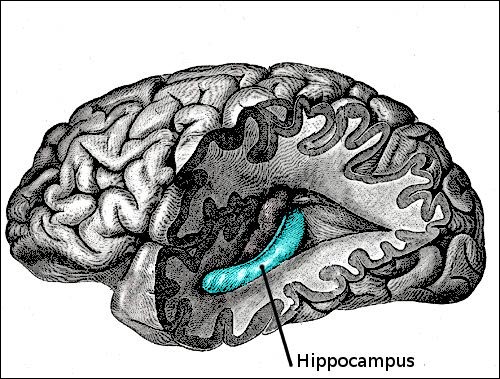How does 'silence' without sound affect the human body?

By
People who live in a busy city want to 'sometimes want to get away from the hustle and bustle and go to a quiet place', which may be because their bodies want silence. Research has been progressing in recent years on the positive effects of 'silence' on the human brain.
This Is Your Brain on Silence --Issue 16: Nothingness --Nautilus
http://nautil.us/issue/16/nothingness/this-is-your-brain-on-silence
As a rule of thumb, it can be understood that unpleasant noise is exhausting both physically and mentally. People who live in a noisy environment full of noise on a daily basis are often said to have chronically high levels of stress hormones.
Sound, not just noise, is felt by the cochlea, a part of the ear known as the 'Uzumaki tube,' that converts physical air vibrations into electrical signals and transmits them to the brain. The mechanism works even when you are in a deep sleep, so you may be surprised and awakened by the sudden sound.

By
According to the 2011 World Health Organization (WHO) announcement, 'Western Europe and the United States each have about 3 million people suffering from unpleasant noise, and 3000 of the lives lost due to heart disease. Was brought about by excessive noise. '
It has long been known that 'sound can have a negative effect on health,' Florence Nightingale said, 'unnecessary noise is the most cruel situation of lack of care,' and the child suddenly dies. It claims that the cause is noise. And this Nightingale claim came into the limelight again in the mid-20th century when epidemiologists discovered a correlation between high blood pressure and noise problems caused by chronic highways and airports.

It was known that sound affects health in this way, but much attention is paid to 'what kind of effect does'silence', which is a state without sound, affect the human body?' I didn't. However, in 2006, an experiment conducted by physician Luciano Bernardi to investigate 'the effect of music on human physiological phenomena' accidentally found the effect of silence.
Dr. Bernardi listened to 12 subjects with 6 types of music and observed blood pressure, blood carbon dioxide concentration, and blood flow in the brain during that time, and found that any music was in the same state as the body being awake. It is said that a physiological change has occurred. However, in the two-minute interval between songs, I found that my body was much more relaxed than when I was playing music. From this time on, the blank time, which was thought to be meaningless, became the most interesting research subject of Dr. Bernardi.
Dr. Bernardi said, 'The stimulus of noise concentrates the mind in one direction, and conversely, the silence without stimulus may put the mind in a deeply relaxed state.' .. Dr. Bernardi's paper on 'The Impact of Silence' was the most downloaded paper published in the

By
Dr. Michael Ware, who studies cranial nerves at the University of Oregon in 2010, observed how loud sounds occur in the brain, and in the case of intermittent sounds, it is a special case of the auditory cortex. We have found that nerve cells in the mouse brain indicate a arrested state when the network to neurons is activated, whereas even sounds of similar loudness are continuously emitted. .. Until then, it was known that animals react strongly at the moment when the sound disappears, and it was thought that this could cope with sudden danger, but Dr. Ware's research results have started to silence the brain. It was clarified that the nerve cells in the brain sometimes react strongly. In other words, it is easy to think that the state without sound is 'the state without input', but the brain recognizes the moment when the sound suddenly disappears as 'input', and if there is no sound after that, the activity of the auditory cortex. The mechanism of stopping the sound has been clarified.
In 2013, Duke University biologist Dr. Inke Kirste investigated the 'effects of silence' using mice, and found that giving 2 hours of silence per day made the hippocampus in the brain region involved in memory more visible. I found that it develops. 'If the causal relationship between silence and brain cell development could be demonstrated in humans,'silence therapy' is a way to treat hippocampal-related symptoms such as dementia and depression,' said Dr. Kirste. May be used as. '

However, some neurologists argue that there is no such thing as 'true silence.' 'For example, if you're listening to a song you know well on the radio and suddenly the music stops, it should continue to play in your head,' said Dr. David Kramer of the University of Dartmouth. To explain that the auditory cortex of the brain may remain active even if the sound disappears due to the action of memory.
This kind of brain function is called 'background activity', and it has been clarified that it accounts for most of the energy consumed by the brain. It is known that performing tasks such as pattern recognition and complex calculations increases the energy consumption of the brain by only a few percent, and it is extremely difficult to completely rest the brain.
Although it is often unclear how silence affects the brain, in recent years, 'silence' has been achieved, for example, in high-end headphones with noise canceling function and tours to experience meditation. The number of businesses that make noise is increasing. In addition, the Finnish Tourism Board believes that a quiet environment is an important tourism resource, and is actively promoting the quiet environment as an excellent advantage. At first glance, the fact that many people are generously seeking 'silence', which seems to be 'only nothing', can be said to be a straightforward indication of the effect of 'silence'.
Related Posts:
in Science, Posted by darkhorse_log







